Many universities spend tens of millions of pounds on consulting companies to attract international students, averaging 2,000-10,000 pounds (60-250 million VND) per student.
According to Big Issue magazine, British universities spend £500 million (over $620 million) each year on study abroad consulting companies. On average, 50% of international students apply through consulting companies. For Chinese students, the rate is 70%.
For example, in the 2022-23 academic year, Greenwich University paid 28.7 million pounds to 230 consulting firms to recruit nearly 3,000 master's students and 500 undergraduate students. This figure is up from 18.3 million pounds the previous academic year. Compared to 5 years ago, the spending has increased nearly 8.7 times. On average, the commissions received by consulting firms abroad are more than 8,200 pounds per student (10,000 USD). Another example is De Montfort University, which spent 17.1 million pounds and recruited more than 4,400 international students, with an average commission of about 3,800 pounds per student.
A survey of 20 UK universities by The Observer , a newspaper owned by the Guardian Media Group, found that the average commission that consultancy firms receive ranges from £2,000 to £8,000 per international student. This figure is much higher than the £1,000 level 10 years ago.

International students on campus at the University of Bristol, UK. Photo: University of Bristol
The dependence on consultancy firms shows how important international students are to the British university purse. This is because international students pay tuition fees many times higher than domestic students. The British Council estimates that international undergraduates pay an average annual tuition fee of £22,000 (nearly $27,500), compared to £9,250 for domestic students. For medicine, the figure is nearly £68,000.
Nathan Brennan, international admissions officer at the London School of Economics and Political Science, one of 22 universities that does not work with the consultancy, said that due to inflation, domestic student fees have lost a third of their value since 2012. Schools have to find ways to diversify their international student intake. The reliance on international student fees has also grown each year.
Brennan believes that the demand for study abroad consulting services will certainly continue to increase as the number of international student applications shows no signs of slowing down.
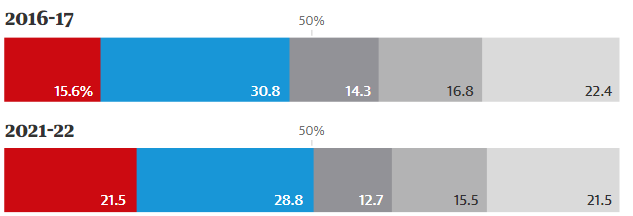
International students contributed a fifth of total university income in the UK in 2021-2022. Red shows the contribution of international students, blue is domestic students. Photo: The Guardian
Study abroad consulting companies are accused of enticing students to follow study programs that have been agreed upon with schools.
According to a report by the British Universities International Liaison Association (BUILA), 24% of international students who used study abroad consultancy services said their chosen company was biased towards certain universities. More than 30% of employees surveyed agreed that consultancy companies would direct clients to universities where they received the highest commission. However, in the UK, the list of consultancy companies is not mandatory, so applicants cannot verify the company's connection to the university before using the service.
Schools surveyed by Observer all saw consultancy firms supporting candidates with completing applications, visas and accommodation as essential to creating a positive relationship between students and schools.
Explaining the cost to study abroad consulting companies, Greenwich University said that its commission rate remained the same but the sharp increase in the number of students had pushed up costs. De Montfort University did the same, saying that the commission rate corresponded to the student's tuition fees, with tuition fees for students within the EU increasing so the commission rate was higher.
There are around 680,000 international students studying in the UK in the 2021-2022 academic year, according to the Higher Education Statistics Agency (HESA). This is an increase of 12.3% compared to the previous year. International students also contributed £42 billion to the UK economy this academic year, up from £31.3 billion four years ago.
Huy Quan (According to The Guardian, Big Issue)
Source link




![[Photo] VinUni students' emotions are sublimated with "Homeland in the Heart: The Concert Film"](/_next/image?url=https%3A%2F%2Fvphoto.vietnam.vn%2Fthumb%2F1200x675%2Fvietnam%2Fresource%2FIMAGE%2F2025%2F11%2F26%2F1764174931822_10-3878-jpg.webp&w=3840&q=75)


![[Photo] Close-up of heavy damage at the school located on the banks of the Ban Thach River](/_next/image?url=https%3A%2F%2Fvphoto.vietnam.vn%2Fthumb%2F1200x675%2Fvietnam%2Fresource%2FIMAGE%2F2025%2F11%2F26%2F1764152130492_ndo_bl_img-8188-8805-jpg.webp&w=3840&q=75)
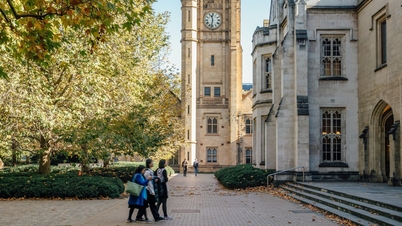














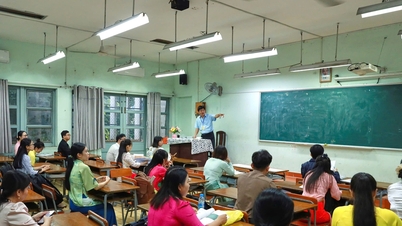
























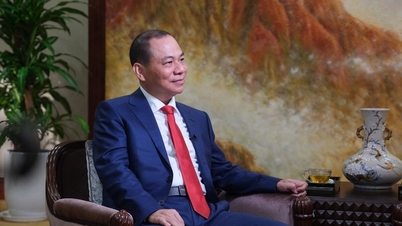
















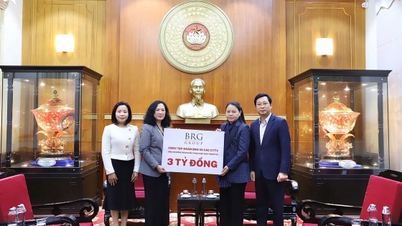











![[Photo] Opening of the 28th Session of the Hanoi People's Council](https://vphoto.vietnam.vn/thumb/402x226/vietnam/resource/IMAGE/2025/11/26/1764155991133_image.jpeg)










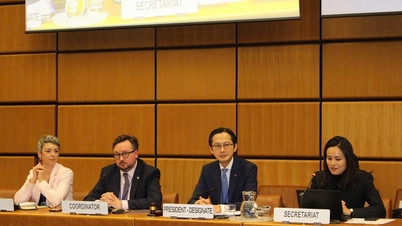





















Comment (0)